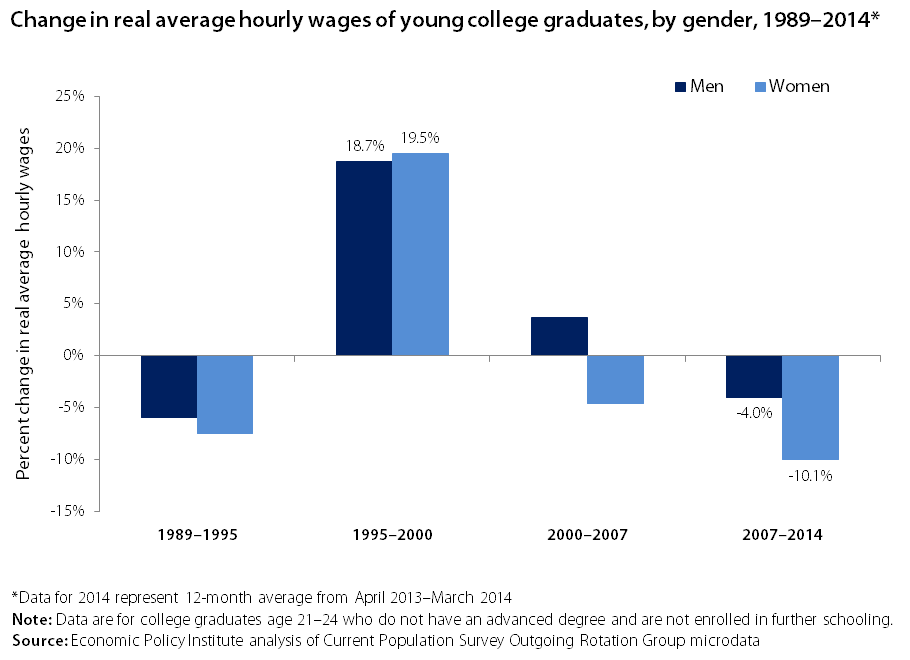Wages of Young Female College Grads Are Lower Today Than They Were In 1989
One of the most shocking findings from Heidi Shierholz’s, Will Kimball’s, and my research on young graduates is that inflation-adjusted wages for young female college graduates are lower today than they were in 1989. Average real wages for young female college graduates are currently $15.29, whereas 25 years ago they were $16.12 (in 2013 dollars)—a decrease of 5.2%.
This is part of a wider trend of wage stagnation and decline since 1989 for both men and women. For all college graduates ages 21-24 (male and female combined), wages today are only 2.4% higher than they were in 1989. This growth was driven entirely by the prosperous economy of the late 1990s, when young grads of both genders saw wage increases of close to 20%. Outside of that time period, however, wages have stagnated or declined, with women seeing especially large declines in the 2000s.
The figure below illustrates how the weak economy since 2000 has disproportionately hurt young women college grads’ wages as compared to men’s. Although women saw wage gains in the 1995-2000 period of strong economic growth, women’s wages have declined by 14.2% since 2000, with most of that loss in the period since the start of the Great Recession in 2007. In fact, since 2007, young women college grads have seen their wages fall 10.1%, while men’s wages declined 4%.
Our research showed that young college graduates’ fates are closely tied to the fate of the overall economy. The current weak labor market not only makes it difficult to find a job, but it also means that there is no need for employers to increase wages, as it is easy to keep the workers they need at lower wages when workers have no other options. If we want to reverse the wage losses that occurred due the Great Recession, we need to invest in our economy in ways that will boost aggregate demand and spur job growth, which will in turn improve wage growth for workers with jobs.

Enjoyed this post?
Sign up for EPI's newsletter so you never miss our research and insights on ways to make the economy work better for everyone.